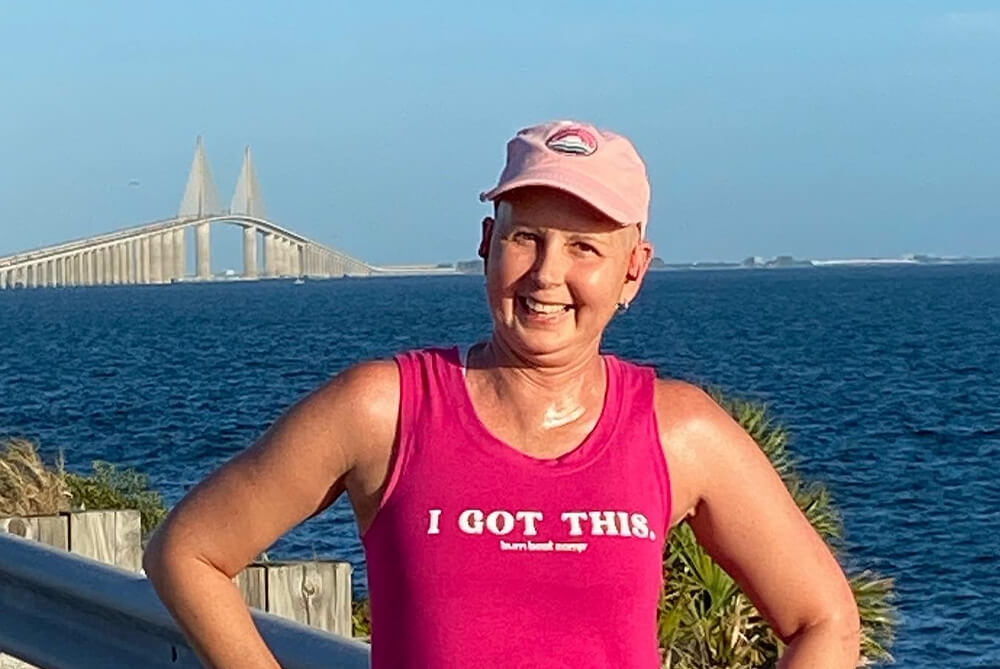Chemotherapy Instructions For Patients

Quick tips during treatment:
- Listen to your body
- Stay connected and let others help you
- Stay active, but pace yourself
- Take care of yourself
- Stay on schedule
- Drink plenty of fluids
Your healthcare team will make sure that you have any prescriptions you need during treatment to manage side effects. If you need refills on prescriptions, please let the clinic know two to three days before you run out, to give time for processing. Please allow two to three weeks for us to complete paperwork needed for FMLA, handicap parking permits, etc.
Contact Us
Immediately report any signs and symptoms of infection, including:
- Fever of 100.4F or above
- Redness, swelling or drainage around skin sores or IV site
- Sweating or shaking chills
- Sore throat or mouth sores that interfere with eating or drinking
- Cold or flu-like symptoms
- Difficulty or burning with urination or urine that appears dark or cloudy in appearance
How to Manage changes in appetite:
- Eat five or six small meals each day instead of three large meals.
- Choose foods that are high in calories or protein.
- If food tastes like metal, eat with plastic forks or spoons.
- Try new foods to maintain interest in foods.
- Eat with family or friends or watch television while you eat.
- Ask your nurse about seasonings that may help some foods taste better.
- Drink milkshakes or soups that are easy to swallow.
- Write down how much you eat and drink each day.
Treatment of nausea and vomiting may include the following:
- Eat small frequent meals for 12–24 hours after receiving chemotherapy.
- Avoid spicy, sweet, fried or fatty foods.
- Avoid alcohol and fluids that are acidic (such as oranges, grapefruits, tomatoes, etc.).
- Take prescribed nausea medication as instructed by your doctor or nurse. You may also use Maalox, Mylanta® or TUMS for stomach upset or indigestion. When taking medication for nausea, wait 40–60 minutes before eating.
- Rinse mouth before and after meals and several times daily with nonalcoholic mouth rinse or a solution of 1/4 teaspoon baking soda and 1/8 teaspoon salt to one cup of warm water, swish and spit. Make fresh daily.
Mouth care strategies:
- Keep your mouth and lips moist.
- Use lip balm with no menthol.
- Sip water or suck on ice chips, unless instructed not to by your healthcare team.
- Try drinking through a straw.
- Brush your teeth and tongue with a soft toothbrush or cotton swab after each meal and before you go to bed.
- Use toothpaste or gel that has fluoride in it and does not contain alcohol or hydrogen peroxide.
- Rinse your mouth every three hours during the day with the following mixture:
- One cup warm water, 1/4 teaspoon baking soda and 1/8 teaspoon salt
- Rinse with plain water
- Call your doctor or nurse if you have:
- Trouble eating or swallowing
- Painful spots or sores on your lips or in your mouth or white film on your tongue
Prevention and treatment of constipation may include the following:
- Increase fluid intake by drinking eight 8-ounce glasses of fluid each day. This can include any food that melts into a liquid, such as ice cream, Jell-O or ice pops.
- Increase the amount of dietary fiber by eating more fruits, vegetables and whole grain cereals, breads and bran.
- Exercise as tolerated to increase gastric motility.
- If no bowel movement within two days, start a stool softener such as Senokot®, Colace® or docusate sodium.
- Start with two pills daily, then gradually increase or decrease your dose until you have a good bowel movement every one to two days. Some patients may need as many as four to five pills twice a day. If bowels become loose, stop taking the pills until bowels become firmer and then start again at a lower dose.
- Milk of Magnesia, two tablespoons twice daily, may also be taken.
Prevention and treatment of diarrhea may include the following:
- Avoid milk and dairy products, spicy foods, alcohol, caffeine-containing foods and drinks, and high fiber and high-fat foods.
- Drink plenty of clear liquids, such as water, Gatorade and apple juice. It is often helpful to limit your diet to clear liquids for 12 to 24 hours, or until the diarrhea stops, and then gradually add clear soups, bread and crackers.
- For mild diarrhea, a diet of bananas, rice, applesauce and toast (the BRAT diet) may decrease the frequency of stools.
- For severe diarrhea (three bowel movements per day over your normal routine), take two tablets of Imodium® after the first bowel movement (BM), then one tablet with any other loose bowel movements, up to eight tablets per day.
- Call if diarrhea does not resolve within 24 hours.
How to reduce the incidence of infection:
- Maintain healthy skin.
- Use an electric shaver.
- Clean yourself well and gently after going to the bathroom. Report any soreness or bleeding in the rectal area.
- Wash hands well with soap and water throughout the day, or if not available, use hand sanitizer. Specific times you should wash your hands include:
- Before you cook or eat
- After you use the bathroom
- When you are in a public place
- Avoid people who are sick or have a cold.
- Have someone else clean up after your pet.
- Limit sun exposure and wear >30 SPF sunscreen when outside.
Treatment of pain or discomfort may include:
- Tylenol®
- Ibuprofen
- Other medications prescribed by your doctor
Managing hair loss:
- Before your hair falls out:
- Wash your hair with mild shampoo and pat it dry with a dry towel.
- Some people choose to cut their hair short.
- Ask your nurse for locations to purchase a wig, scarves, or hats.
- Hair may start to fall out two to three weeks after chemotherapy begins.
Sexual concerns:
- Temporary or permanent infertility and sexual dysfunction may result from chemotherapy treatments. Patients should discuss their concerns about sexual problems and infertility with the physician or nurse.
- Always use some method of birth control.
- Astroglide® may be used if females experience dry mucous membranes.
Mental health concerns:
Please talk with your physician or nurse if you have any concerns so we can make a referral for you to speak to our behavioral health services team.
Symptoms of anxiety:
- Affects your appetite, causing you to not want to eat
- Causes headaches and muscle pains or tightness
- Upsets your stomach, causing diarrhea or nausea/vomiting
- Causes shortness of breath or make it hard to breath
- Makes you feel restless and unable to sit still
- Causes difficulty sleeping at night
Tips for managing anxiety:
- Listen to relaxing music or use guided meditation.
- Do things that you enjoyed prior to your diagnosis.
- Get plenty of rest and do it in a quiet place.
- Journal your feelings or read for pleasure.
- Get light exercise as you are able.
- Talk with your healthcare team about how you are feeling and see how they can help.
Depression is also a normal feeling. Some signs of depression are:
- A feelings of helplessness or hopelessness or that your life has no meaning
- Losing interest in being with your family or friends
- Not enjoying the hobbies or activities you used to enjoy
- Crying for long periods of time or every day
- Decrease in appetite or weight loss
- Changes in your energy level, sleeping all the time or not sleeping well
- Thoughts of taking your own life; thinking about a plan to commit suicide or frequent thoughts of death or dying
- If you experience any of these signs, please talk with your healthcare team immediately.
What is chemo brain?
A term used to describe the feeling of fogginess or cloudy thinking that can happen during cancer treatment. Many patients describe it as “feeling like you are walking around with your head in a cloud.” It may be harder for you to stay focused on your normal activities.
Back to Top
Tips for managing chemo brain:
- Make lists and write everything down.
- Use a planner for keeping appointments and important dates.
- Do puzzles, games or take a class to exercise your brain.
- Make sure to get enough sleep and eat well. You also need to make sure to stay hydrated
- Do not try to do too many things at once. Keep multitasking to a minimum.
- Keep a journal of your day-to-day issues so they can be tracked.
- Follow a daily routine.
General information:
- Some of the drugs that you may receive may cause you to be impaired, so please talk with your nurse about whether you should drive after treatment.
- Make sure you have your follow-up appointments scheduled before leaving the clinic.
- Please allow ample time for any cancellations or changes in your appointment times
- There is a physician available 24 hours a day.
- Please call the clinic, if you have any questions.
Your healthcare team is here to support you through your treatment journey. Please do not hesitate to ask the physician or nurse for additional information on specific drugs or issues you may be having.

